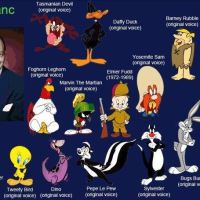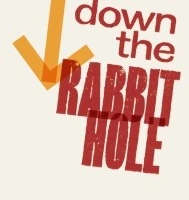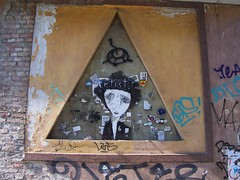 From the age of 17 onwards I have been fascinated by Franz Kafka’s world – both in his fiction and his life as an insurance clerk in Prague. When I first read his novels and short stories I was a frustrated clerk myself, working for the Inland Revenue in London and imagining myself as a struggling writer in my free time.
From the age of 17 onwards I have been fascinated by Franz Kafka’s world – both in his fiction and his life as an insurance clerk in Prague. When I first read his novels and short stories I was a frustrated clerk myself, working for the Inland Revenue in London and imagining myself as a struggling writer in my free time.
Even now, the shadow of Kafka lurks over any attempts at creative writing and so my stories invariably tend to feature a social outcast pitched against faceless authority.What helped fuel the cult of Kafka for me was that there were so many books about his troubled private life and his awkward public persona. There were his diaries and volumes with letters written to his father, his sister Ottla, his girlfriends (Felice and Milena) and to his friend and editor Max Brod.Despite Brod’s promise to destroy Kafka’s unpublished works all these various manifestations of the writer’s state of mind are in the public domain. With friends like these who needs enemies?
One of the key volumes to confuse the line between the myth and the man is Gustav Janouch’s Conversations With Kafka which portrays Kafka as an ethical seeker after truth. Janouch was a young poet whose father worked at the same insurance institute that employed Kafka. His book is an act of hero-worship which philosopher and historian Gershom Scholem described as “a work of dubious authenticity that nevertheless was swallowed uncritically by a hungry world”.
Stylistically, historically and geographically there is a world of difference between Franz Kafka and David Foster Wallace (DFW). Yet, it seems to me that both writers have important points of connection in the way they explore deep questions about the nature of humour, loneliness and alienation.
DFW wrote a short piece about Kafka’s fiction which can be found in the collection Consider The Lobster and Other Essays entitled, with a characteristic lack of economy: ‘Some Remarks On Kafka’s Funniness From Which Probably Not Enough Has Been Removed’.
In this short essay DFW writes about the difficulty of teaching Kafka to U.S. students and of trying, and failing, to convince them that Kafka was actually a pretty funny guy. Of course, his difficulty was that what he saw as ‘funny’ is a far remove from what is deemed humorous by mainstream culture. In this context DFW wrote of how we have been conditioned “to see jokes as entertainment and entertainment as reassurance”.
DFW believed that the “really central Kafka joke [was] that the historic struggle to establish a human self results in a self whose humanity is inseparable from that horrific struggle”.
DFW’s own ‘historic struggle’ was with depression and this eventually led to his tragic suicide on September 12th 2008 at the age of 46. What we can glean from the works published in his lifetime and the posthumous writings, obituaries and tributes is that he set himself such high standards that he was almost destined to feel a deep level of pain and dissatisfaction.
This feeling of sadness and inadequacy came despite, or perhaps because of, having written the heartbreaking work of staggering genius that is Infinite Jest. It is no surprise that he was unable to come up with anything to match such a monumental work. The tragedy is that he wasn’t able to see that even something half as good would still have been head and shoulders above the competition.

Lipsky is four years younger than his subject but you get the feeling they are on the same wavelength. DFW felt open enough to talk about his ‘mid-life crisis’ at the age of 27 but was still careful with his replies and very conscious of how what he said would look like in print (“written stuff said out loud on the page doesn’t look said out loud. It just looks crazy”).
Some things DFW said are, with hindsight, ironic in the saddest way. He admitted that he was a difficult man to live with but hoped to become a father one day. The truth, we now know is that he also could not live with himself and yet he told Lipsky: “I’ve learned no one can look after me long-term better than I can. The only way we really learn things is the hard way”.
The most valuable aspect of the book is in that it provides striking insights into his motives for writing Infinite Jest.
Wallace told Lipsky that the novel was structured as an entertainment that doesn’t work in order to show how a dependency on consumer goods and popular entertainment gives us the illusion of happiness and acts as a kind of social pacifier.
The depths of these insights come from being similarly affected by the processes he describes in the novel. He reveals, for instance, that his primary addiction throughout his life was not to drink or drugs but to television and finds no difficulty in articulating why this was the case, saying that “the predictability in popular art, the really formulaic stuff that makes no attempt to surprise or do anything artistic, is so profoundly soothing”.
The reason why David Foster Wallace’s fiction rings so true and human is because he doesn’t adopt an elitist or distancing perspective: “most experimental stuff is hellishly unfunny to read……I wanted to do something that is real experimental and very strange, but it’s also fun”.
It is clear that Wallace, like Kafka, was trying to portray inner experience but that to do this with humour and integrity was both mentally painful and physically demanding.
It would be too much to equate Lipsky’s admiration for Wallace with that of Janouch for Kafka, but by accident or design his book serves a similar function of constructing a myth around the way DFW saw and interacted with the world around him.
Related links:
The Unfinished- David Foster Wallace’s Struggle to Surpass ‘Infinite Jest’ – Article in The New Yorker by D.T. Max
The Take-Away – recordings of conversations with DFW by David Lipsky.








Nice post. I think the myth-building is, at least to some extent, the result of the relatability of both Kafka and Wallace. Despite the air of avant-garde there’s something in their writing that makes the reader feel that their insights into what it means to be human seem not constructed in the way some other forms of entertainment are. Underneath the layers of literary technique and obfuscation there seems to be something very basic about the human experience that they want to share. Unless you’re an obsessive completionist, why would you make it through IJ, itself seeming like a never-ending read, if you didn’t think Wallace did indeed have something important to say?
Thanks for the comment. Jan. I agree that what Kafka and Wallace are saying is something very basic about human nature and, paradoxically, these are the very things that are often the hardest to express without being glib and superficial.